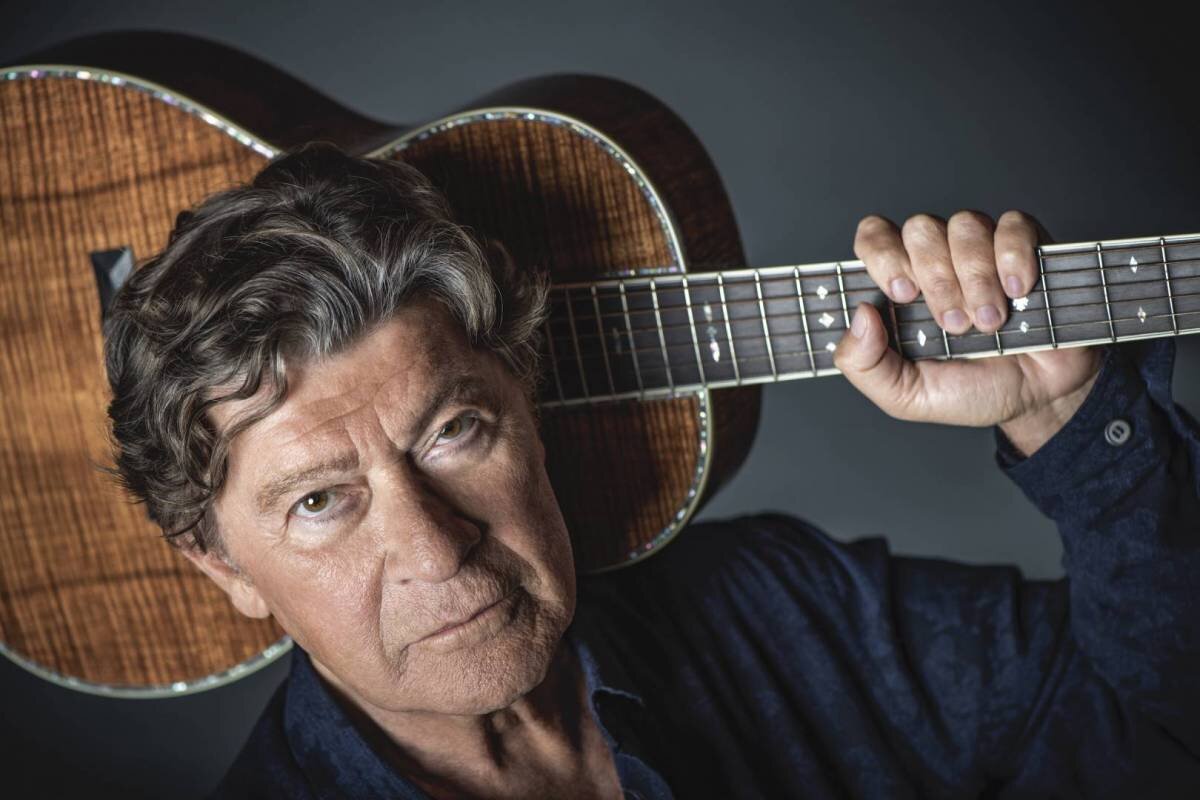Photo by Don Dixon
(Note: I adore the Band although I have ambivalent feelings, after interviewing him twice, about Robbie Robertson. Our first talk was about his autobiography Testimony in 2016. I didn’t like the book, I don’t think he cared too much for me, and we struggled through a cold and perfunctory interview. Robertson in 2019 was a lot more engaging. He was promoting the Band doc Once Were Brothers, which I enjoyed a hell of a lot more than his book, although either project is, I think, a fairly cynical attempt to rehabilitate Robertson’s reputation now that there’s nobody left to dispute his side of the story (and the only other surviving member, Garth Hudson, ain’t talkin’.) But here’s the thing: if Robbie Robertson is perhaps a very ambitious and slightly reptilian creature, which made him distinct from the others, and which ultimately drove a wedge between them, it’s okay with me. I don’t need him to litigate this. And, to my surprise, I had to allow, after watching Once Were Brothers, that an essentially work-driven Robbie Robertson, his own demons aside, was perhaps more wounded than I had ever considered by his bandmates’ destructive proclivities. So there’s that. Less charitably, the original director of the film, a veteran documentarian based in Toronto, confided that he quit when he found it impossible to wrangle with Mr. Robertson’s plus-sized ego. The man does seems pretty invested in building his own legend. But he also wrote “The Weight” and “The Night They Drove Old Dixie Down” and “King Harvest (Has Surely Come”) and… and… and… so shuddup, Adrian.)
Robbie Robertson sounds genuinely delighted. Conversation has turned to “Let Love Reign”, a heavily atmospheric track from the man’s soon-to-be-released new record Sinematic. Robertson cites Dale Hawkins’s “Susie Q” in his press notes, but with its walking-guitar intro, the Straight is more reminded of Howlin’ Wolf’s “Spoonful”. On hearing that, Robertson comes alive.
“Oh! Oh, my god, I’m glad to hear that!” he exclaims, reached at home in L.A. Pausing for a moment to ponder whether he’s reminded of it, too, Robertson chuckles softly and adds: “I didn’t know if I was playing ‘Spoonful’ or ‘Susie Q’ or what I was doing!”
Maybe it was a blast from the deep unconscious?
“I think so!” Robertson replies, laughing. “It’s just in there. And every once in a while, it sneaks out on you.”
Whatever else is rattling around inside after almost seven decades of playing the instrument, Robertson’s early guitar style receives justifiably lavish tribute in the film Once Were Brothers: Robbie Robertson and the Band, opening in Vancouver on Friday (September 20). A string of vintage players bear witness to that moment in the early ’60s when a teenage Robbie Robertson was recruited into the Hawks and the sound of Toronto’s Yonge Street changed overnight. This half-Mohawk kid who came out of nowhere—how did he do that?
“I think part of it is probably hard work and part of it is magic,” Robertson offers. “But a big, big thing for me was going from Canada down to the Mississippi Delta. This sound was in the air, and I wanted to get some of that on me. And I did, and I worked really hard on it, so when I took that back to Canada with me, or even to New York, whenever we went up north, people were, like, ‘Whoa, what’s this?’?”
A feast for anyone who loves the Band, Once Were Brothers covers all the mythic stops in their journey from the Hawks through to the Malibu years—when addiction ravaged the outfit—and, finally, The Last Waltz. Bob Dylan’s fateful electric war on his audience receives ample coverage, as does the Band’s artistic breakthrough under the roof of Big Pink. By any measure, it’s the greatest trove of fresh archival footage we’ve seen since the Festival Express rolled through town 16 years ago.
The doc dovetails with Robertson’s score for Martin Scorsese’s latest, The Irishman, along with the movie-drunk new album, Sinematic, which prompts some brief chat about meeting Orson Welles in a Hollywood restaurant and being introduced to Sam Peckinpah—matters that Robertson indicates might be covered in the second volume of his memoirs, picking up with his time painting the town with Scorsese at the end of the ’70s. Tying it all together is the Sinematic track “Once Were Brothers”, which takes a square look at the frayed bonds left in the wake of The Last Waltz.
In the film, Robertson is candid about visiting an unconscious Levon Helm on his deathbed in 2012.
“I spoke to him on the phone a time before that, but we weren’t really in touch,” he tells the Straight. “He was doing his own thing and that period of our brotherhood was kinda left in the past.”
Between his 2016 autobiography, Testimony, and the generous new doc, one wonders if Robertson’s recent work blitz is a way of coming to terms with the losses that followed once the original lineup of the Band vacated the stage once and for all at San Francisco’s Winterland Ballroom in 1976.
“I’m not haunted by it in the least,” Robertson counters. “I have deep reflections at periods with the guys, and that was one of the things I thought we reachieved in this documentary, the story of that brotherhood, but I’m very much onward and upward in my work. And I don’t mind revisiting. I mean, I just put together the 50th anniversary of the Band album collection, but I’m really all about today and what I’m doing tomorrow.”
Published September, 2019
